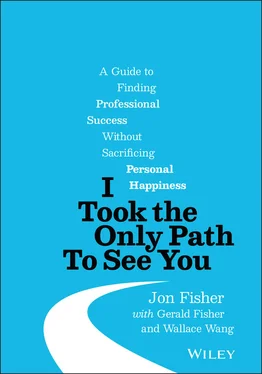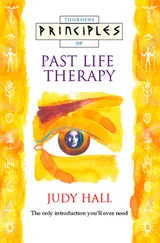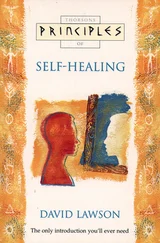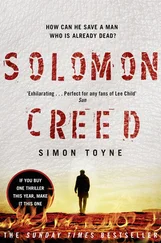But Dick was a great administrator and a great manager, and he had an idea. He wanted to find people to represent our team in the lesser events because he knew that competition would be strongest in the most popular events but weakest in the lesser events, and that would give us a chance.
So he found a big, strong kid who could represent us in weightlifting. He recruited my best friend in the physics department to throw horseshoes. Keep in mind that my friend had never thrown a horseshoe in his life, but he volunteered and looked up the rules. Now think how many people enter a horseshoes competition. Two, maybe three? It turned out my friend won and allocated all the points from the horseshoe competition to our team's total.
Of course, the points allocated from horseshoes was not equivalent to the points allocated from baseball, football, or basketball, but it was a start. We competed in weightlifting, horseshoes, badminton, and bicycle racing.
Then one day, Dick burst into my office and said, “Fish,” which is what he called me, “You've got to get down to the pool. Grab a bathing suit. We're entered in water polo.”
Imagine what it was like wandering through the locker room, asking to borrow a bathing suit. It, of course, didn't work so I had to lay out the big bucks at the gym store for a high-tech speedo.
Not only had I never played water polo before, but I had never even seen a water polo match. I told Dick, “I want to help but I'm not much of a swimmer. There's got to be somebody better.”
Dick said, “Well, I'll look around. But we can't forfeit. If you forfeit, you get no points, and there are only two other teams entered. One was a varsity swimming team, which has a number of Olympians on it. By some technicality, the swimming team was free to play water polo. The other team was from the university's water polo team that consisted of players who didn't make the varsity, but they were championship players from high school.
And then there was our team.
Dick said, “We're going to come in third. There's no doubt at that, but we're going to get the points for coming in third, which is a lot of points.”
Well, not only did I almost drown – apparently there have no rules in water polo – they also just beat the crap out of me and I couldn't even get out of the pool.
I had to go over to the side and use the steps and somebody had to push me from behind. I fell down like a beached whale and good ol’ Dick came over and said, “You guys did great! But I have some bad news for you. That was just the first period.”
Had I been able to get up and raise my hand, I would have told Dick a thing or two.
Instead I told him, “Just push me back in the pool.” When the score reached 58 to nothing, the referees mercifully called the game, but still granted us the points for third place.
Being a great manager and administrator, Dick looked up records on everybody in the department and everybody in the university, and he found Professor Bill Little.
Bill had come to the university as an assistant professor and quickly became an associate professor before being promoted to a full professor. He became a power in the department, and he was only in his thirties. But what caught Dick's attention was that Bill had been the national champion of Scotland in the pole vault during the Cold War.
Dick approached Professor Bill Little, and Little said he would be glad to help. What Bill neglected to say was that he hadn't touched a pole or done any kind of jumping whatsoever in about 15 or 20 years.
Undaunted on the first day of competition, Bill grabbed a pole and ran down the runway. He planted the pole, went up, but went under the bar instead of over it, and flew off to the side, missed the landing area, and almost killed himself.
We all saw that and we thought if Professor Bill was willing to do that, we thought we all had to do the best we could do as well. Professor Bill's generous act spread through the whole group and we did better than we had any right to do.
Amazingly, we wound up winning the All University Championship. The school athletic director even announced our victory at halftime of the homecoming football game. That started our run of two straight years of championships where the physics department won the All University Championship, beating out all the fraternities, all the clubs, and all the other athletes on campus.
Good old Professor Bill did not win any events and was not going to compete against high school all Americans, and people who were currently running track for the university, but he gave us his all, even though he could have killed himself or gotten himself seriously injured.
That showed me that you don't have to be a calculating loser in order to succeed. Instead, you could show an act of kindness, you could show an act of caring and compassion, and it ends up coming back on you and making your organization that much better.
If you are the head of any group, your group will be better and probably the best it can be if your leadership just includes semblances of kindness.
CHAPTER 2 Understanding Happiness
Iwant you to be happy. That may sound like a lofty dream or a bad sales pitch, but it's true. The happier people are, the better the world will be for everyone. We already know what happens when the world is full of fear, anger, and hate so it's important to make as many people happy as possible starting with you.
So this book is my way of helping make the world a better place for me and my family, and in the process, for you, your family, and everyone you care about. We're in this together and we can do this together. If you want to be happy, here's a secret.
I can help you.
Most people think I'm happy because I'm an entrepreneur who has started four different companies and sold my third one, Bharosa, to Oracle in 2007 for millions of dollars. Other people think I'm happy because I'm a professor teaching business classes at the University of San Francisco. Yet other people think I'm happy because I wrote the book Strategic Entrepreneurship: Shattering the Start-Up Entrepreneurial Myth, which is required reading for the MBA program at several business schools including the University of California, Berkeley. Still others think I must be happy because I'm an inventor with more than one hundred patents to my name.
Yet none of this is important. I'm happy because I'm a husband to a wonderful wife, and a father to a lovable daughter. I'm also a son to my parents, and close friends with numerous people I've had the fortune to know over the years. Take away all my money, all my awards, all my patents, and all my accolades, and guess what? I'd still be happy as a husband devoted to my wife, a father to my daughter, a son to my mother and father, and a good friend to so many people I've met throughout my life.
That's because I've learned that the real riches in life can never be measured by the size of your bank account, the number of people who admire you, or the list of accomplishments you may have achieved. Instead, true wealth comes from a clear understanding of what happiness really means.
If everyone wants to be happy, why are so many people unhappy? The answer is simple. Most people never take the time to understand how to be happy. If you don't know how to be happy, how can you possibly be happy? That's like trying to fish without knowing what a fish looks like or where fish even live. If you don't know what a fish is or where to find it, you're never going to catch any. Likewise, if you never understand happiness, you're never going to be happy in more than a superficial way.
People spend more time planning a vacation than they spend deciding what would make them happy. When you don't know what will make you happy, you'll risk searching for happiness anywhere and everywhere. When you do this, chances are extremely good that you'll never find it.
Читать дальше












